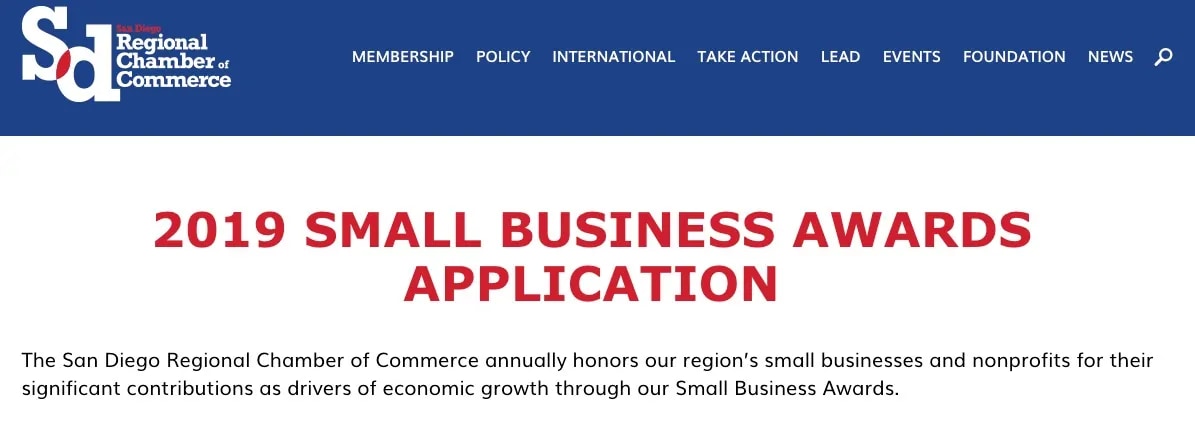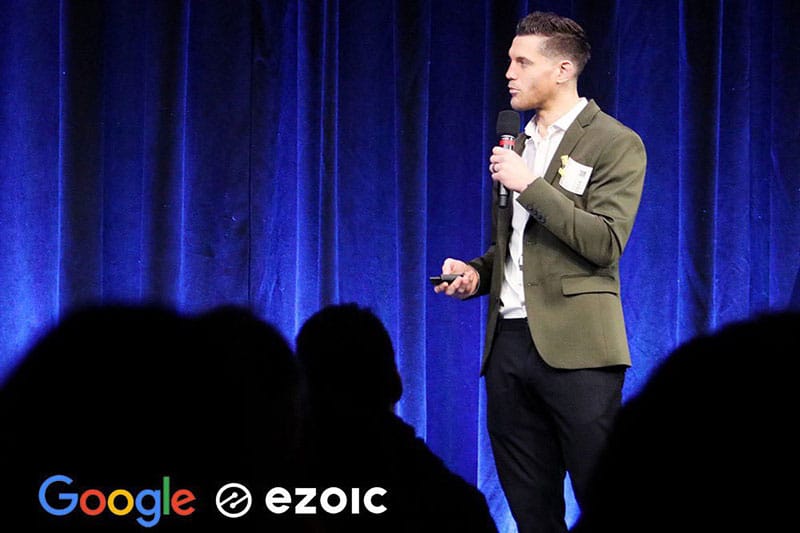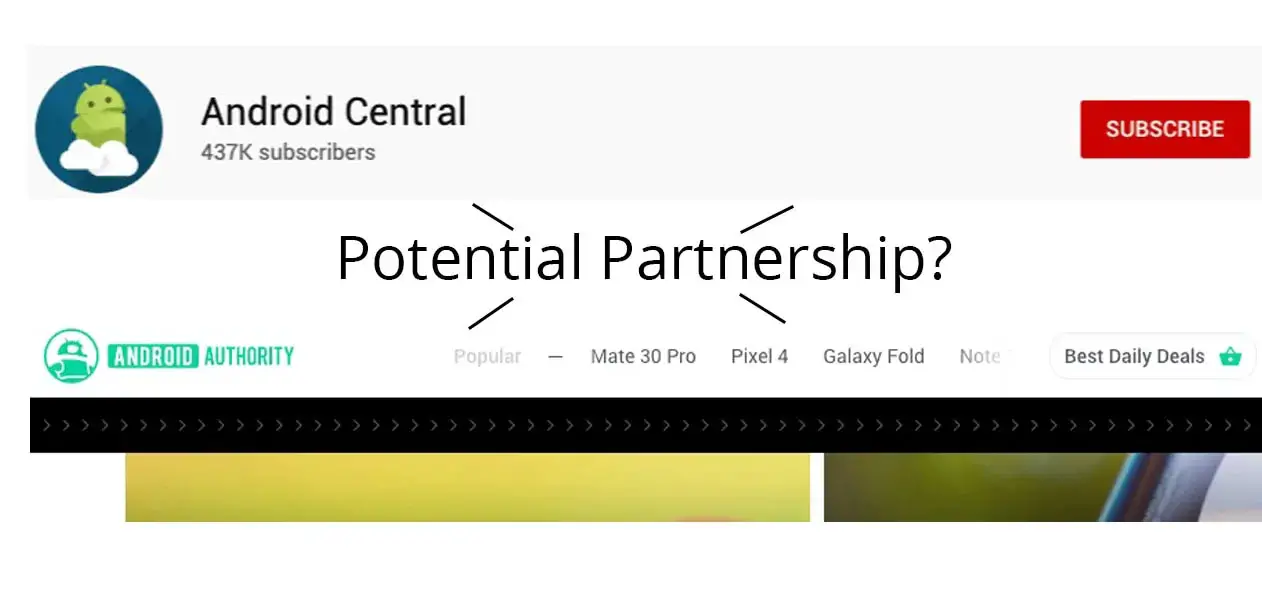
5 Proven Ways Websites Can Get Attention, Links, and Traffic

Get helpful updates in your inbox
Ways websites can get attention, links, and traffic
The tactics I’m going to take you through today are seen frequently in traditional marketing. Companies think about objectives like getting leads, getting press, and growing a brand. However, many techniques used in marketing can also serve the purpose of generating website traffic or attention that can result in powerful backlinks that can aide in SEO efforts.
So if you’re a publisher trying to grow your brand, get audience attention, or attain quality backlinks (authority, credible sources: i.e. news sources), these tactics will help you do it.
Applying to awards to get attention
As silly as it may sound, this first tactic can prove valuable to grow your brand as a publisher. There’s an award for everything—seriously. With a quick Google search, I found a decent amount of awards that relate to a niche:
- The Sprudgies – these awards are all coffee-related. These could potentially be beneficial if you’re a site in the coffee niche.
- Best Small Business Websites – this award application gets your small business website evaluated by an independent panel on the design, ease of use, copywriting, interactivity, use of tech, innovation, and the content of your website.
- Best Family Blog Awards – This award is specifically catered to family blogs. If you were a publisher in this niche, you could reach out to see how to become eligible.
These add value to your site in multiple ways:
- Guaranteed backlinks from award providers, press, and others
- An accolade that you can use for selling sponsored content or direct ad deals to brands
Some awards you find online are pay-to-play, meaning you have to pay some small fee to apply, but there are quite a few awards you can basically just buy. You can also think about the potential of local awards to apply to. I found one for San Diego after a quick Google search.

For those without that possibility, all it takes is a little creative thought into the types of awards to search and apply for. If you’re a more established site with lots of content, you have more to pull from. Think along the lines of:
- Have I done any campaigns recently?
- Can I submit my podcast for podcast-related awards?
- Do I have a YouTube series?
- Does my website have a fantastic design aesthetic?
- Did I write a high-performing article around a certain topic?
There are lots of publishing awards and business awards about growth. If you’re a small site that’s grown a lot revenue-wise, there’s even a list online of 28 small business awards you can apply to. Occasionally, some of these even have cash prizes.
The benefit of these is that almost all of these can get published in different ways. You can put these awards on your site: they add credibility to your site in the eyes of both search engines and users.
Writing for outside publications to garner links
Whether you’re managing a large or small website, you absolutely can write for an outside publication.
Submitting ideas for editorials to digital news brands used to be easier than it is now because there’s been some fraud within the space. It’s not hard to become a writer for something like HuffPost, Forbes, The Drum, Business Insider, business journals, or any number of other major publications.
Often they will have applications for writers. Some of them will actively be looking for part-time writers. You could even get paid!

EX: Digiday was recently looking for someone that could be a part-time platform writer. If you run a site and you’re a publisher, or if you have writers that work for you, they could perhaps spend a portion of their time applying to some of these types of part-time writing positions.
Even many of these might be unpaid, writing them allows a certain author to become more of an authority on different topics (which is great for YMYL niche sites and SEO), specifically, you’re looking for publications that have some relevance in your area, brand, or niche that are larger in nature. It’s not very difficult to set out with the goal “I want to have an article published with my name on it by the end of the week.” You could 100% do that.

One of the most successful travel blogs in terms of traffic and brand longevity, Nomadic Matt, has been featured in these digital news outlets above. This could potentially be how your brand performs down the road with a little sweat equity and grit.
Apply to speaking engagements to build authority
Offline engagements oftentimes are some of the best ways to get attention as a brand and bring authority to your website (and eventually traffic from improved SEO).
There are a lot of different events, organizations, etc. that are out there and are looking for speakers. One of the things you can do to get publicity for your publication is to apply to these types of speaking engagements.

Once you become a speaker for an event, their agenda, newsletter, and supporting content could all link to your website and your author bio.
You’ll be sent out as a speaker with a bio with a link back to your site as well. Not only that, if you’re speaking on something that’s relevant to your site’s content, you can tell people to get the sites on your slides afterward. You can drive people back to info on the site itself.
You can use the entire event itself as a content creation opportunity in general: i.e. repurposing a presentation you might give, or a slideshow. We have examples of this when we repurpose Pubtelligence presentations and panels for our blog.
Speaking engagements are another really great way for publishers to get attention, links, and traffic. Think about speaking engagements from the perspective of:
- Are there events within my specific niche?
- Are there events within the medium I publish? (I.e. websites, podcasts, video)
- Are there events locally?
Use HARO to get traffic and links
HARO (help a reporter out) is a story-sourcing tool for journalists. Basically it’s reporters that are looking for sources for stories and when your website, or a writer on your site, can serve as a source they will use your name/brand/website as a credible information provider.
You get a regular newsletter from HARO with a list of reporters saying, for example, “I’m looking for a source that’s an expert on the history of bowling.” You can choose to respond to any that are relevant to you or our website.

If this was your niche, you can reach out and say, hey, I’m an expert on this topic. You can provide them with a quote, etc, and this links back to you when they finally publish, it’s a great way to drive some traffic to your site.
EX: “Hey, I have a great resource on this, tell the reporter you have an article on the increasing price of digital ads.” You never know, they might reference the entire article.
Now they might not always take your quote, but oftentimes they do. When you’re trying to grow as a publisher, anything additional you can do that creates quality traffic and backlinks is worth a shot.
Partner with other publishers that specializes in other media
EX: Let’s say I’m a great publisher on the topic of Android devices. I have tons of android content, but I don’t have a lot of video. I haven’t invested in it; I’ve got writers, but I’ve never found someone to do video.
Meanwhile, there is a publisher on YouTube that specializes with Android video content. It may be a good idea to partner with them on strategic content. Maybe embed some of their videos, maybe you can collaborate where you provide textual content, they create a video on it, and you could perhaps both capitalize on the shared traffic.
You give them more views and attention. They give you better content that is tailored to your articles.
This could be applied to podcast publishers, newsletter publishers, video publishers, app publishers, game publishers, print publishers, and other relevant media in your site’s particular area.

If you’re a small publisher, rather than seeing other people that have information in your area as competitive, if they’re not in your chosen medium at the moment, it might be a good idea to partner.
EX: “Listen, we’ll promote your podcast in exchange for you pointing people back to content on our site.” Take topics from your site, Google them along with video, podcast, etc, and you’d be able to find a list of potential idea with who you could partner with.
Is my website too small to use these tactics?
There’s no such thing as too small of a site or brand. Everyone has to start somewhere. We’ve always heard the cliched saying, “It’s not what you know, it’s who you know.” But in reality, oftentimes it’s sound advice.
These steps could potentially send you lots of quality traffic back to your site, especially if you’re starting from scratch and are trying to build up your brand authority. Some sites might be able to do these tactics continuously and create a lot of good partners.
Some partners might be incredible and produce lots of good content within the partnership, and might not. Regardless of whether It’s definitely good to try. The worst that can happen is you receive a polite “no.” On the other hand, if you grow your brand with these kinds of tactics you’re increasing the value of your brand and the chances it’ll have on your website’s future prospects.
Have any questions about these tactics? I’ll answer them below.

Tyler is an award-winning digital marketer, founder of Pubtelligence, CMO of Ezoic, SEO speaker, successful start-up founder, and well-known publishing industry personality.
Featured Content
Checkout this popular and trending content

Ranking In Universal Search Results: Video Is The Secret
See how Flickify can become the ultimate SEO hack for sites missing out on rankings because of a lack of video.
Announcement

Ezoic Edge: The Fastest Way To Load Pages. Period.
Ezoic announces an industry-first edge content delivery network for websites and creators; bringing the fastest pages on the web to Ezoic publishers.
Launch

Ezoic Unveils New Enterprise Program: Empowering Creators to Scale and Succeed
Ezoic recently announced a higher level designed for publishers that have reached that ultimate stage of growth. See what it means for Ezoic users.
Announcement
